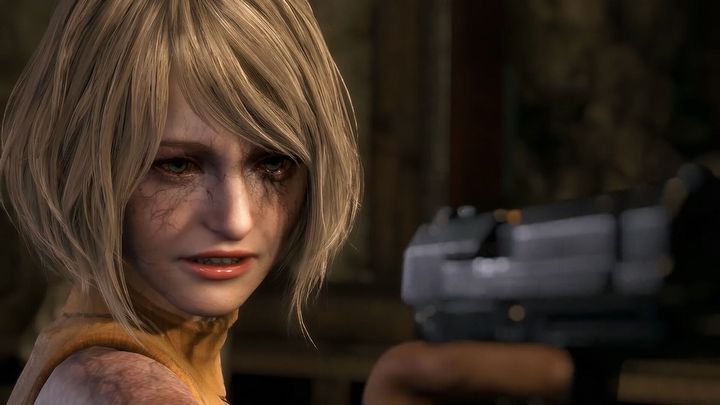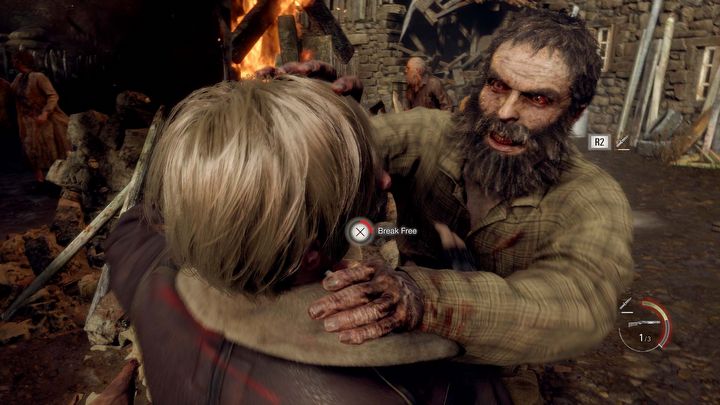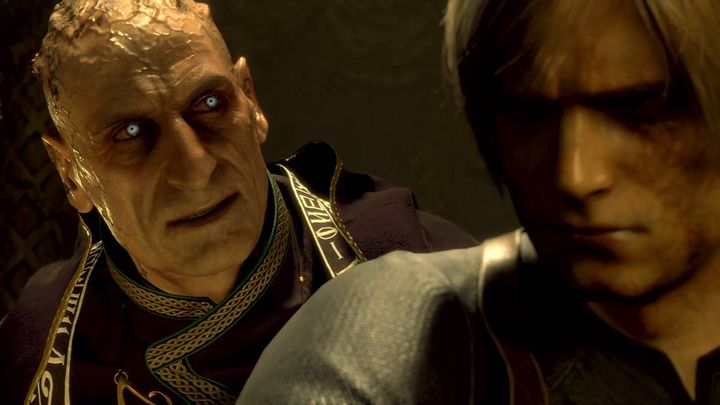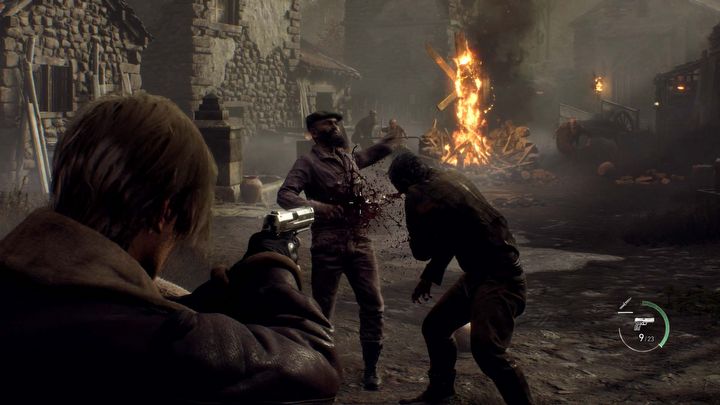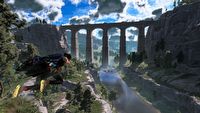Out of Love to Original. Interview with Yoshiaki Hirabayashi about Resident Evil 4 Remake
As the release of Resident Evil 4 Remake approaches, we talked to its producer, Yoshiaki Hirabayashi, about this installment.
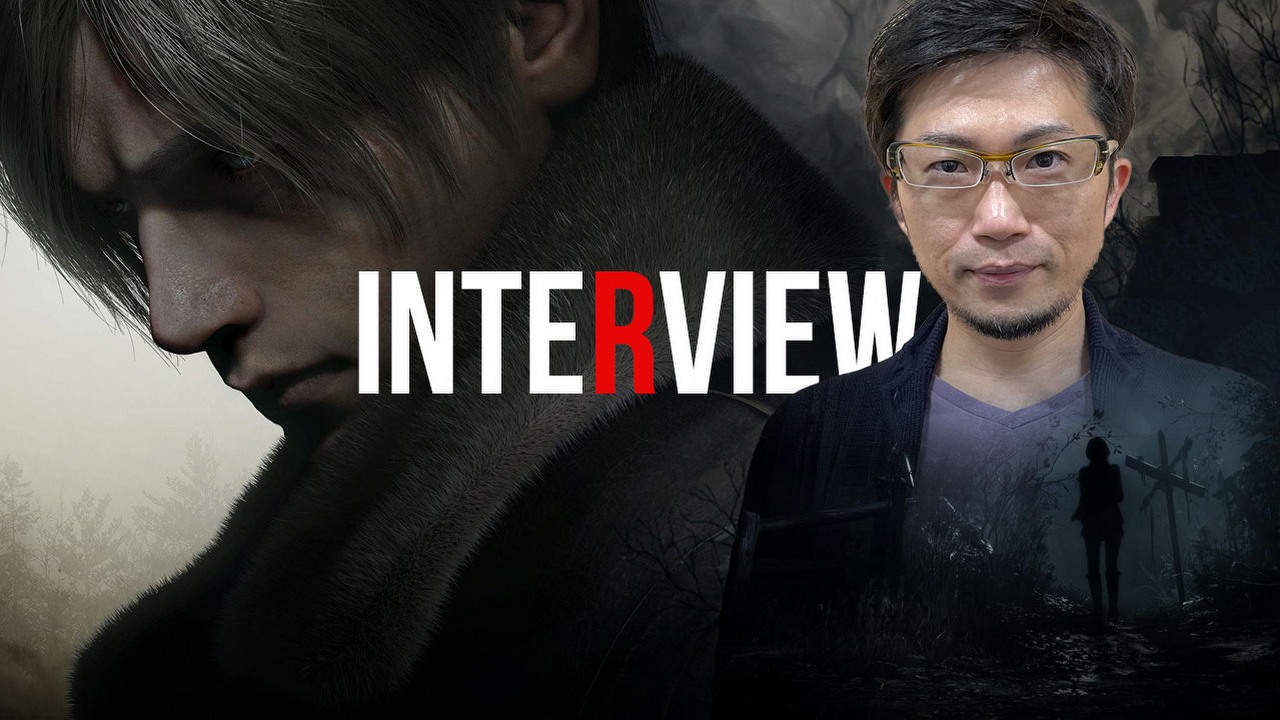
The release of the highly anticipated Resident Evil 4 Remake is nigh. Everything indicates it will be another successful return to the past. Resident Evil 4 is for many the best entry in the series, so it's no wonder fans can't wait any longer. This time, instead of zombies, we will encounter the bloodthirsty inhabitants of a town in Spain. Once again, however, we will have to fight for our lives, collect ammunition and herbs, solve puzzles and fight fierce battles with bosses.
On the occasion of the game's launch, we talked to Yoshiaki Hirabayashi, the producer of Resident Evil 4 Remake, and ask him some questions about the upcoming installment.
Gamepressure: Is remaking Resident Evil 4 the biggest remaking effort you've ever had? What was the hardest thing about making the remake? The extent of changes in Resident Evil 2 and 3 was far greater, largely due to the decision to change the camera position. In Resident Evil 4, no such significant revolution was necessary. With the remake being more faithful to the original game, did this make your task easier, or was it more challenging for that reason?
Yoshiaki Hirabayashi: When remaking Resident Evil 4, we didn't need to make the same ground-up changes to the game system as we did on the remakes of Resident Evil 2 and 3. This was the first time for us to have this kind of experience on a remake so it felt difficult. When it came to start the project, we began by reevaluating the experience of playing the original game, and we found various areas such as the controls and storyline and that we could focus on in the remake, and so these became the focus of our efforts.
What are the key ingredients of a perfect remake in your opinion? What recent remakes would you consider to be closes to ideal?
Yoshiaki Hirabayashi: I think it depends a lot on the nature of the title you're remaking, but all remakes need to start from a place of respect and love for the original. If you make this your starting point, then I think it will show in your work and players will feel it, no matter how little or how much you change the game in the process.
The Resident Evil series has a huge following, but many consider the fourth installment to be the best. Do you share this view, and what do you think makes people remember the game so fondly? How big was the pressure of redoing such a legendary game?
Yoshiaki Hirabayashi: The original RE4 is particularly beloved within the series, and I think that fans have their own various reasons for loving the game, whether it be because it was the first TPS-style game in the series, its varied gameplay content or something else. I think the sheer breadth of gameplay variety is a big part of its reputation and that did make me nervous when it came to working on the remake.
Was there any element that you wanted to change a lot, but were afraid it could spoil the original experience?
Yoshiaki Hirabayashi: Our direction was to respectfully modernize the game while not making huge changes just for their own sake, so I don't think there was anything we wanted to change so much it would take us too far from the original. Reapproaching the controls, action, storyline and stage design of the original while adding new elements will, I think, allow players of the remake to experience a fresh take on the original game which preserves its play feel and pacing, so that it's at once fresh and familiar.
Which one do you think is more difficult – creating a new game from scratch or remaking an original one? What are the main differences between these two processes?
Yoshiaki Hirabayashi: It's very difficult to make comparisons like this. Whatever your starting point, it's always tough to come up with ideas that you imagine players will enjoy, and the journey from the start of development to a finished game is always a hard one.
Which gameplay mechanic from Resident Evil 4 do you feel has aged the least well, and which one did you decide not to include in the remake for that reason? Looking back, do you think the Chuck Norris style roundhouse kicks are a little cringeworthy?
Yoshiaki Hirabayashi: I still play the original a lot and love it a lot, but it's almost 20 years old now, so I do think there are elements that can be improved upon with a modern approach. That said, I don't think there are badly aged parts I would want to remove, so much as areas that I think benefit from this kind of brush-up to feel more up-to-date. Probably the only things I could mention that were removed completely were cutscene QTEs, and the controls have also been substantially updated.
With the newer installments of the series, you've made the decision to go with a first-person perspective. Were you ever tempted to add a first-person mode to any of the remakes you developed? After all, mods for the PC version of Resident Evil 2 and 3 that add FPP mode are quite popular.
Yoshiaki Hirabayashi: Our goal with this remake was to build on and update the feeling of the original, so while we are always open to exploring new possibilities, keeping the over-the-shoulder viewpoint felt the best way to do this.
Is adding the ability to shoot while walking going to have a big impact on the game? In the original, it was often said that the inability to walk determined the shape of combat and the project of the game - things like enemy placement, pacing, shape of locations.
Yoshiaki Hirabayashi: Players will find the new system more flexible, for sure, as it's a play-feel they come to expect from modern games. In order to maintain the pacing, we've adjusted related elements such as enemy AI and behaviour, and stage designs. The modernised controls bring a new level of strategy to the game and I hope you enjoy facing off against similarly beefed-up enemies with them.
You've been working on the series practically since its inception, you've seen all its ups and downs. How has the survival horror as a genre changed over the years? How has Resident Evil changed?
Yoshiaki Hirabayashi: Speaking purely from a personal perspective, I think survival horror has produced a great experience through the combination of resource management and a tension-and-release cycle. The visuals have become more refined and the style of story has differed from title to title, but I think those fundamentals have remained the same from the beginning of the genre until today.
In the remake, the knife has limited durability and is damaged after each use. However, it is not particularly effective during combat, as its attacks deal minimal damage, just like in the original game. About the gun, I got the impression that the it is not as effective in killing Ganado, as the enemies seem to require more headshots to take down, similar to the zombies in the earlier games What was the reason for introducing those changes?
Yoshiaki Hirabayashi: In addition to its normal attack, the knife has had a variety of additional actions added, such as parry, evade and stealth kill. These new actions will give players a broad toolset from which to strategise their style of play, but resource management is integral to survival horror, and using the limited resources available to get through situations is part of the fun, whether it be ammunition for guns or other items.
The knife Leon has equipped at the start of the game has a durability gauge, but he can repair it at the Merchant and also pick up additional, non-repairable knives along the way. These aspects have been carefully balanced so that, as long as you don't use the knife excessively, you will still be able to utilize it effectively.
3

Author: Matthias Pawlikowski
The editor-in-chief of Gamepressure.com, associated with the site since the end of 2016. Initially, he worked in the guides department, and later he managed it, eventually becoming the editor-in-chief of Gamepressure, an English-language project aimed at the West, before finally taking on his current role. In the past, a reviewer and literary critic, he published works on literature, culture, and even theater in many humanities journals and portals, including the monthly Znak or Popmoderna. He studied literary criticism and literature at the Jagiellonian University. Likes old games, city-builders and RPGs, including Japanese ones. Spends a huge amount of money on computer parts. Apart from work and games, he trains tennis and occasionally volunteers for the Peace Patrol of the Great Orchestra of Christmas Charity.
Latest News
- End of remote work and 60 hours a week. Demo of Naughty Dog's new game was born amid a crunch atmosphere
- She's the new Lara Croft, but she still lives in fear. Trauma after Perfect Dark changed the actress' approach to the industry
- „A lot has become lost in translation.” Swen Vincke suggests that the scandal surrounding Divinity is a big misunderstanding
- Stuck in development limbo for years, ARK 2 is now planned for 2028
- Few people know about it, but it's an RPG mixing Dark Souls and NieR that has received excellent reviews on Steam, and its first DLC will be released soon
